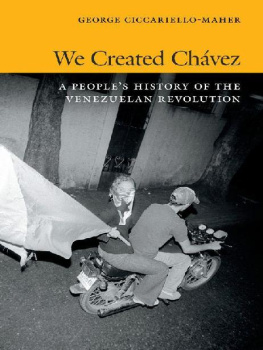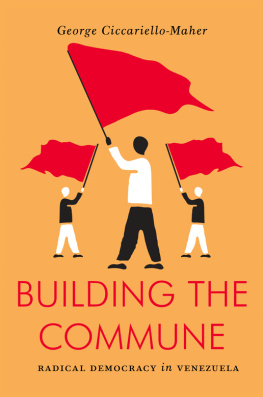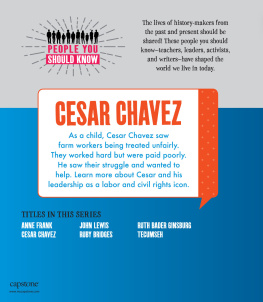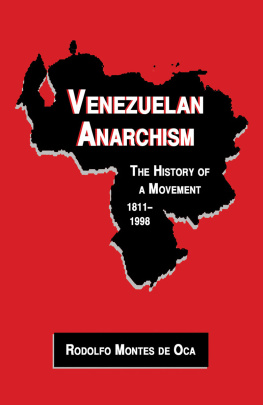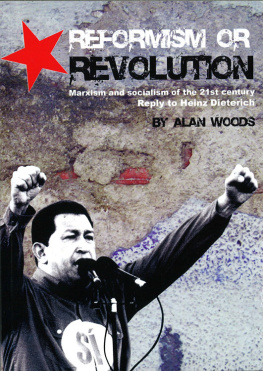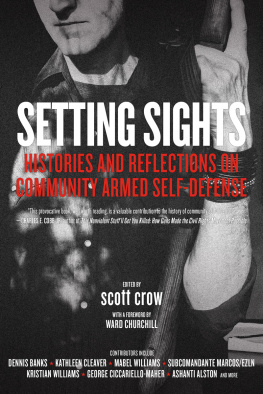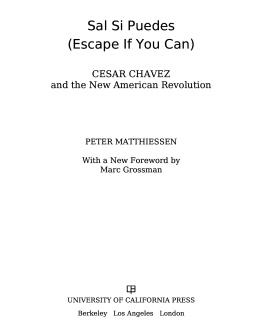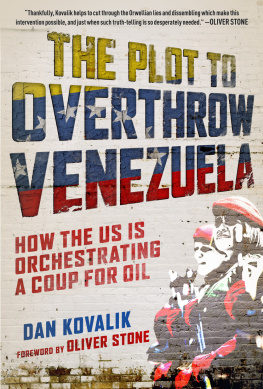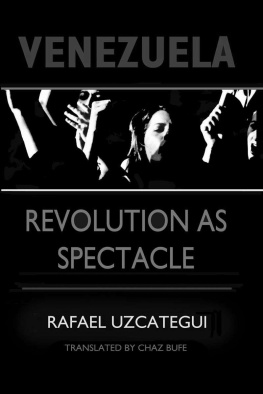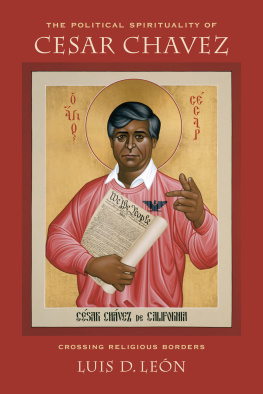George Ciccariello-Maher - We Created Chávez: A People’s History of the Venezuelan Revolution
Here you can read online George Ciccariello-Maher - We Created Chávez: A People’s History of the Venezuelan Revolution full text of the book (entire story) in english for free. Download pdf and epub, get meaning, cover and reviews about this ebook. year: 2013, publisher: Duke University Press, genre: Politics. Description of the work, (preface) as well as reviews are available. Best literature library LitArk.com created for fans of good reading and offers a wide selection of genres:
Romance novel
Science fiction
Adventure
Detective
Science
History
Home and family
Prose
Art
Politics
Computer
Non-fiction
Religion
Business
Children
Humor
Choose a favorite category and find really read worthwhile books. Enjoy immersion in the world of imagination, feel the emotions of the characters or learn something new for yourself, make an fascinating discovery.
- Book:We Created Chávez: A People’s History of the Venezuelan Revolution
- Author:
- Publisher:Duke University Press
- Genre:
- Year:2013
- Rating:5 / 5
- Favourites:Add to favourites
- Your mark:
- 100
- 1
- 2
- 3
- 4
- 5
We Created Chávez: A People’s History of the Venezuelan Revolution: summary, description and annotation
We offer to read an annotation, description, summary or preface (depends on what the author of the book "We Created Chávez: A People’s History of the Venezuelan Revolution" wrote himself). If you haven't found the necessary information about the book — write in the comments, we will try to find it.
We Created Chávez: A People’s History of the Venezuelan Revolution — read online for free the complete book (whole text) full work
Below is the text of the book, divided by pages. System saving the place of the last page read, allows you to conveniently read the book "We Created Chávez: A People’s History of the Venezuelan Revolution" online for free, without having to search again every time where you left off. Put a bookmark, and you can go to the page where you finished reading at any time.
Font size:
Interval:
Bookmark:
We Created Chvez
A PEOPLE'S HISTORY OF THE VENEZUELAN REVOLUTION
GEORGE CICCARIELLO-MAHER
Photographs by Jeff St. Andrews
DUKE UNIVERSITY PRESS
Durham and London 2013
2013 Duke University Press. All rights reserved. Printed in the United States of America on acid-free paper . Cover design by Jennifer Hill; text design by Courtney Leigh Baker.
Typeset in Galliard by Keystone Typesetting, Inc.
Library of Congress Cataloging-in-Publication Data
Ciccariello-Maher, George.
We created Chvez : a people's history of the Venezuelan Revolution /
George Ciccariello-Maher ; photographs by Jeff St. Andrews.
Pages cm
Includes bibliographical references and index.
ISBN 978-0-8223-5439-0 (cloth : alk. paper)
ISBN 978-0-8223-5452-9 (pbk. : alk. paper)
1. Social movementsVenezuelaHistory. 2. VenezuelaHistoryRevolution, 1958. 3. VenezuelaPolitics and government. 4. Chvez Fras, Hugo. I. St. Andrews, Jeff. II. Title.
N363.5.C53 2013
303.4840987dc23 2012048666
ISBN: 978-0-8223-7893-8 (electronic)
FOR ABBEY AND OAKLEY FRANCISCO
In memory of Joel Olson
Contents
Acknowledgments
This book, like the revolutionary process it documents, would not be possible without the blind faith and irrational support of many. My dissertation committeeWendy Brown, Mark Bevir, Nelson Maldonado-Torres, Kiren Chaudhry, and Pheng Cheahlet me make what must have seemed like two terrible decisions: to move to Venezuela for no apparent reason and to write a book while also writing a dissertation. I am grateful for their patience and unflagging support. Similarly, my editor at Duke University Press, Valerie Millholland, responded to my proposal with encouragement from day one, despite the fact that it had sprung, only recently and partially formed at best, onto a restaurant napkin. Gisela Fosado has helped to carry the project forth as it ascended from the abstract to the concrete. My thanks go out as well to two anonymous reviewers for Duke University Press, who truly surprised me with their generosity and helped to improve the manuscript through several drafts.
Many friends and comrades read the manuscript and offered suggestions that proved decisive for the revised version, including Dan Berger, Lainie Cassel, Fred Fuentes, Kiraz Janicke, Elliott Liu, Naomi Schiller, and of course Jeff St. Andrews, whose incredible images grace these pages and who tempted fate with me on many an occasion to take them. Steve Ellner, Michael Lebowitz, and Gregory Wilpert have proven supportive through the years both as incisive commentators and as the source of a collective wealth of detailed knowledge of the Venezuelan process. I also owe thanks to the editors of Counterpunch , Jeffrey St. Clair and the late Alexander Cock-burn, in whose digital pages many of these ideas and arguments were first tested. Dante Canoura of Euroamericana de Ediciones was kind enough to allow me to reprint epigraphs from the lyrics of Al Primera.
My deepest debt of gratitude goes to the subject of this book, the bravo pueblo venezolano , whose inspirational actions occasionally confound analysis and whose singular multiplicity makes the task of this bookand especially that of acknowledgmentimpossible to the point of absurdity. I therefore will simply say thank you to x, to y, and to z for the example that you provide and the path that you light. Those whom I came to know concretely and often accidentally taught me the importance of this open-ended acknowledgment, since they were but few among many millions. Thanks to the fiercely affectionate community of 23 de Enero, to those I interviewed and those I spoke with less formally, and especially to my students from the Venezuelan School of Planning. Both in Venezuela and closer to home, I am indebted to the many inspiring comrades who continue to bring the ruckus and build the new world in our hearts: you are the air I breathe, and this work would have been impossible without you.
Thank you Abbey and Oakley Francisco for making writing difficult, for promising joy and love as the perennial temptation that awaits where work ends. This opposition is only apparent, however, as they infuse these pages. Loving thanks, too, to Oakley's incredible birth parents, Matt and Missa, who gave us more gift than one, inviting us into their families as they joined our expanding circle of Abu and Aba, Nonno and Sasa. This circle would not be complete without our dearest Jeff and Alicia, Oak's guard dogs, whose love we can feel even from a vast distance and whose new addition we breathlessly await. For their indescribable contributions to the rebellious joy of my past, present, and future, I dedicate this book to Abbey and Oakley. I also dedicate it to the memory of Joel Olson, who read and discussed the manuscript with me but whose presence in this work far exceeds the comments he gave. I may have changed your mind about Venezuela, but you changed my mind.


Introduction. What People? Whose History?
The people is a poet singing to its own prayer,
although a rosary of sorrow hangs on its chest.
We need to sharpen our aim, our target practice
and although it says ugly words, the people has the right
and it doesn't make me angry, but it's the pure truth:
there is no uglier word than this society.
Al Primera
Who are you? What are you doing here?
When we got to La Piedrita, they already knew we were coming. If not for the phone call they received from a trusted comrade, then from the video cameras lining the perimeter of this revolutionary zone that jealously guards its autonomy from all governments, right or left. If not from the cameras, then from the network of eyes dispersed across the community, always alert to unknown or unrecognized individuals. And if not from all that, then certainly from the guard at the top of the rickety stairs that climb from the parking lot of the apartment blocks into the chaotic jumble of the barrio that lay behind it. He greeted us down the barrel of a chrome nine-millimeter pistol with stern questions: Who are you? What are you doing here? If we didn't have good answers for these questions, there might have been a problem. But indeed, we had an excellent answer: two short words, Valentn Santana.
Just minutes before, my photographer and I had been enjoying the warm June dusk a few blocks below, near a small park in the Monte Piedad neighborhood of 23 de Enero, a notoriously revolutionary area of western Caracas perched precariously above Miraflores Palace, the nominal seat of state power. We were chatting, laughing, drinking beer and miche a surprisingly potent homemade firewater distilled from sugarcanewhile others play dominos, when a new friend raised the inevitable question of why we were there. We had come to understand the revolutionary collectives that constitute Venezuelan President Hugo Chvez's most radical support base, to grasp their political vision and their often tense relationship with the process of political transformation known as the Bolivarian Revolution. Had we gone to La Piedrita? No, we hadn't. Our only contact with the collective had been gazing in awe at the nearby murals surrounding their zone of influence, the most spectacular of which is a massive image of Jesus holding a Kalashnikov, bearing the message, Christ Supports the Armed Struggle.
Well then, you must meet Valentn, this new friend insists, and I know immediately just who it is that he means. Valentn Santana is the historic leader, the iconic figurehead, and the most publicly recognized member of La Piedrita. After a few frenetic phone calls in which our proposed visit is repeatedly rebuffed, our persistence pays off and we are cleared to head up to La Piedrita. We begin the climb upward, past Blocks 5, 6, and 7 of 23 de Enero, after which the multicolored superblock towers for which the area is famous give way to shorter blocks that are grouped tightly to form large, enclosed squares that are, from a military perspective, easier to defend.
Next pageFont size:
Interval:
Bookmark:
Similar books «We Created Chávez: A People’s History of the Venezuelan Revolution»
Look at similar books to We Created Chávez: A People’s History of the Venezuelan Revolution. We have selected literature similar in name and meaning in the hope of providing readers with more options to find new, interesting, not yet read works.
Discussion, reviews of the book We Created Chávez: A People’s History of the Venezuelan Revolution and just readers' own opinions. Leave your comments, write what you think about the work, its meaning or the main characters. Specify what exactly you liked and what you didn't like, and why you think so.

